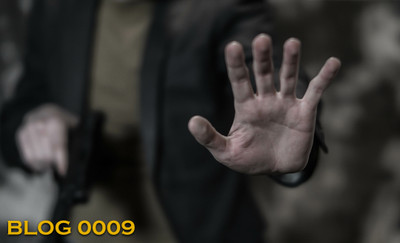


Carrying concealed is a personal right, guaranteed by the Constitution. It’s a responsibility that can significantly deter crime. The effectiveness of concealed carry as a deterrent hinges on three things, the carrier's commitment to awareness and training, the criminal
Carrying concealed is a personal right guaranteed by the Constitution. It’s a responsibility that can significantly deter crime. The effectiveness of concealed carry as a deterrent hinges on three things, the carrier's commitment to awareness and training, the criminal enterprise’s reluctant nature versus armed victims, and a government who promotes individual sovereignty through proactive legislation. While the mere possibility someone may be armed can discourage potential criminals, the true value of concealed carry lies in an armed society, a polite society.
Preparedness begins with situational awareness and being aware of the surroundings. Criminal predators follow a predictive attack cycle. They are far more likely to choose victims who will be an easy target. Generally, those unaware and unalert. The more aware, the more likely detection and avoidance tactics can have a greater impact. Training equips concealed carriers with the confidence to act swiftly and effectively with the proper knowledge, skills, and attitude. This includes everything from basic firearm handling and marksmanship to more advanced concepts like threat assessment, legal considerations, and decision-making under stress. The more exposure to training, the better decisions making in high-pressure situations. Additionally, training fosters a deeper understanding of when and how to use a firearm. This level of preparedness not only protects the carrier but sets an example for others to follow.
One of the most significant advantages of concealed carry is its ability to create uncertainty in the minds of criminals. When potential predators are unsure who might be armed, they are less likely to commit crimes, particularly violent ones. The possibility that any random citizen could be carrying a firearm introduces a risk factor that criminals must consider, potentially preventing them from acting. A primal consideration for criminals is avoiding incarceration and/or injury. This deterrent effect is not just theoretical; numerous studies and real-world examples support the idea that armed citizens can help reduce crime rates.
A right not exercised is a right soon lost. Nobody can force others to exercise their rights, but governments should recognize the right to life and self-defense as a cornerstone to freedom and safety. Legislation should protect constitutional rights, not infringe on them. Citizens have a duty to speak out when laws become a hindrance to freedom. Instead, future legislation should aim to safeguard our freedoms, in particular, our rights to bear arms for the next generations. As more states recognize constitutional carry, it is incumbent on the citizens to be well informed on the laws for the legal, ethical, and moral use of deadly force. Through a better understanding of the use of force, society as a whole benefits.
In conclusion, while concealed carry can be an effective deterrent to crime, its true power lies in exercising our constitutional rights. By adopting a mindset of awareness and preparedness, concealed carriers can not only protect themselves but also contribute to the safety and well-being of their communities. The reluctance of criminals to commit violent crimes diminishes with the increase of an armed citizenry. Governments should recognize the constitutional rights, in particular the right to bear arms. Our aim should be the polite society.